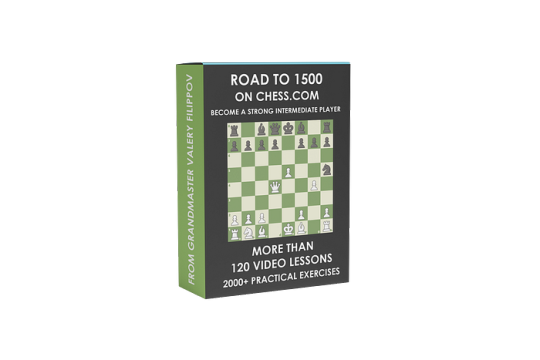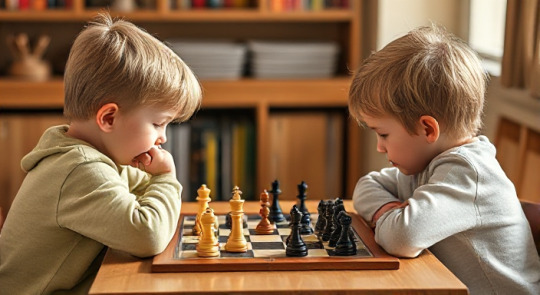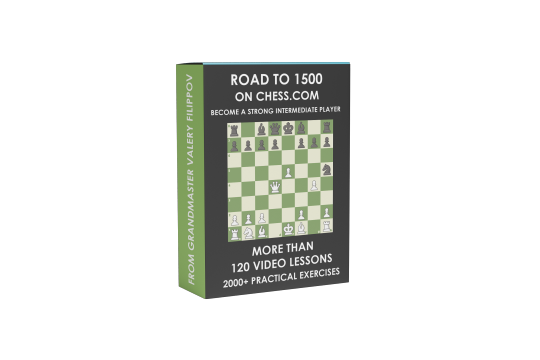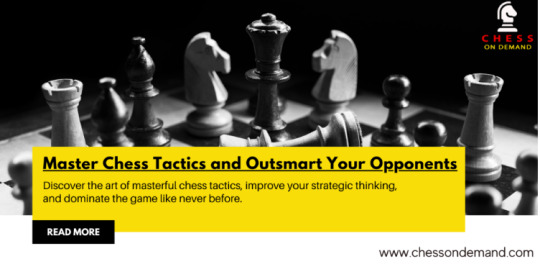#ChessTrainer
Explore tagged Tumblr posts
Text

🤓 𝗖𝗵𝗲𝘀𝘀 𝗞𝗻𝗼𝘄𝘀 𝗡𝗼 𝗕𝗼𝗿𝗱𝗲𝗿𝘀: 𝗧𝗿𝗮𝗶𝗻 𝗔𝗻𝘆𝘁𝗶𝗺𝗲, 𝗔𝗻𝘆𝘄𝗵𝗲𝗿𝗲! ♟️
Unlock your chess potential from the comfort of your own home! Our flexible training program allows you to learn and improve your skills whenever and wherever you choose. 🏆✨
With access to top-tier coaching, interactive lessons, and a global community of chess enthusiasts, you'll be able to sharpen your strategies and tactics without limitations. 👨🏫
Join us today and embrace the world of chess without borders! 🤩
📞Call us on +91 9820403940 || 📧Email:[email protected] || 🌎Visit us:https://chesstrainer.com/
#ChessKnowsNoBorders#TrainAnywhere#GlobalChess#JoinTheMovement#OnlineChessCoach#chessgame#chesseurope#chessusa#OnlineTraining#globalchess#EveryLevel#OnlineChessLessons#ChessMastery#ChessJourney#ChessGoals#ChessCommunity#Checkmate#chess#chessmaster#grandmaster#chessboard#chessplayer#chesslife#chesslover#ChessTrainer
0 notes
Text
How Online Chess Lessons Can Boost Critical Thinking Skills

Chess is often referred to as a game of the mind, where strategy, tactics, and decision-making play key roles in determining the winner. But beyond these competitive elements, online chess lessons can be an exceptional tool for boosting critical thinking and enhancing mental agility. Whether you’re a beginner just learning the game or an advanced player refining your strategy, chess and critical thinking skills go hand in hand. In this blog post, we’ll explore how online chess lessons can help develop critical thinking by improving problem-solving, decision-making, and cognitive skills. We’ll also discuss the many benefits of online chess coaching and how learning chess can stimulate brain development in ways few other activities can.
Continue Reading: https://chesstrainer.com/how-online-chess-lessons-can-boost-critical-thinking-skills/
0 notes
Text

#chess.com#magnus carlsen#chess board#online chess#chesstraining#chesspuzzle#chessmoves#chesslearning#chesslife#chesslovers
7 notes
·
View notes
Text
10 Tips for Beginners in Chess
Chess is an ancient game of strategy, where patience, planning, and practice go hand in hand. Whether you’re picking up the board for the first time or want to improve your basic skills, here are ten essential tips for beginners that can help you advance and enjoy the game even more.
1. Understand the Rules Thoroughly
Before diving into strategies and tactics, make sure you understand the fundamental rules of the game. Familiarize yourself with how each piece moves and the unique moves like castling, en passant, and pawn promotion. Knowing the rules will help you see the bigger picture on the board.
2. Learn Piece Values
Each chess piece has a value that can guide you in exchanges. Generally, pawns are worth 1 point, knights and bishops 3, rooks 5, and the queen 9. While the king has no numeric value, as it can’t be captured, understanding these values will help you make better decisions about which pieces to keep and which to exchange.

3. Control the Center
The four central squares on the board (e4, e5, d4, and d5) are crucial in controlling the game. By placing your pawns and pieces to influence these squares, you’ll gain more mobility and limit your opponent’s options. A strong center allows for more flexibility and a solid foundation for attacks.
4. Develop All Your Pieces Early
A common mistake for beginners is focusing too much on just a few pieces, especially the queen. Instead, work on developing all your pieces, especially knights and bishops, as soon as possible. This will give you more options for attacking and defending.
5. Don’t Move the Same Piece Multiple Times Early On
In the opening phase, avoid moving the same piece multiple times unless necessary. Moving one piece repeatedly wastes valuable time that could be used to bring other pieces into the game. Strive for efficiency in the early moves to maximize your control over the board.
6. Protect Your King
Never neglect the safety of your king. One of the best ways to ensure this is by castling early, which moves the king to a safer position and connects your rooks. Avoid leaving your king exposed to direct threats, as it can lead to a quick loss.
7. Be Cautious with Pawn Moves
Pawns are the only pieces that cannot move backward, so think carefully before advancing them. Reckless pawn moves can create weaknesses in your defense, especially around your king. A solid pawn structure is crucial for a strong defense and effective control over the board.
8. Consider the Opponent’s Threats
Chess is not just about executing your own plans but also about responding to your opponent’s moves. Every time your opponent moves, take a moment to consider what they’re trying to accomplish. This habit will help you anticipate threats and avoid costly mistakes.
9. Practice Basic Tactics
Tactics are short-term sequences of moves that can give you a decisive advantage. Learning common tactics, such as forks, pins, skewers, and discovered attacks, can help you find clever ways to gain material or put your opponent in difficult positions. Practicing tactics can give you an edge even over more experienced players.
10. Analyze Your Games
After each game, especially if you’ve lost, take some time to review it. Look for mistakes, missed opportunities, and areas where you can improve. Many online chess platforms provide game analysis tools to help you understand your weaknesses and strengths. Reflecting on your games is one of the fastest ways to improve.
Final Note: Learning from a Grandmaster
For those serious about taking their chess skills to the next level, learning from an experienced player is invaluable. Grandmaster chess coach Valery Filippov offers online chess lessons tailored to players of all levels. His insights can help you understand complex strategies, refine your openings, and improve your endgame skills. With his guidance, you can progress faster and develop a solid foundation to enjoy chess at a higher level.
#chess#chess.com#chess classes#chessboard#chesslearning#chesslife#chesspieces#chessposting#chesspuzzle#chesstraining
5 notes
·
View notes
Text
Chess Strategies for Beginners
Chess can seem complicated at first, but with some practice and the right strategies, you’ll quickly gain confidence and improve your game. If you’re just starting out, here are some straightforward tips and strategies that can help you win more games and better understand the basics of chess.

1. Control the Center:
One of the first things to grasp is the importance of controlling the center of the board. The four central squares— d4, d5, e4, and e5 are crucial. By placing your pawns and pieces in these areas early on, you gain more space to maneuver and make your moves more effective.
Aim to push your pawns to d4 and e4 (or d5 and e5 if you’re playing black). This will help you dominate the board and make it tougher for your opponent to launch an attack.
2. Develop Your Pieces:
Don’t just concentrate on moving your pawns. It’s important to bring your knights and bishops into play as well. Developing your pieces early is vital for controlling more squares and creating threats.
Here’s a helpful guideline:
Move your knights and bishops out from their starting positions within the first few moves.
Avoid moving the same piece multiple times during the opening unless absolutely necessary. You want to get as many pieces into action as possible.
3. Don’t Bring Out the Queen Too Early:
It might be tempting to deploy your queen early and start attacking, but this can actually backfire. Your queen is powerful, but if it’s exposed too soon, your opponent can target it with their pieces, wasting valuable moves.
Instead, focus on developing your other pieces first. Once your knights, bishops, and rooks are in play, you'll have better support for your queen when it's time to bring it out.
4. Protect Your King:
Your king's safety should always be a top priority. One of the best ways to ensure this is by casting early in the game. Castling helps secure your king behind your pawns while also bringing your rook into play at the same time.
You should aim to castle within the first 10 moves or so. This not only secures your king but also allows you to start positioning your pieces for an offensive.
5. Consider Your Opponent’s Moves:
Chess involves both defense and offense. Before making a move, think about what your opponent might do next. Is your move creating any threats for them? Are they planning to target your pieces or your king?
This approach helps you avoid blunders (unintentional mistakes) and makes it easier to spot opportunities for counterattacks.
6. Keep Your Pieces Working Together:
Chess relies on the teamwork of your pieces. A lone piece may not be as strong as it appears, but when your pieces collaborate, they can create significant threats. For instance, a rook and a queen working in tandem can control many squares and apply pressure on your opponent.
When planning your moves, always seek ways to coordinate your pieces. If they are scattered and isolated, their effectiveness diminishes.
7. Embrace Sacrifice:
Though it may seem counterintuitive, sometimes sacrificing a piece can lead to a greater advantage. If you can give up a pawn or a knight to secure a stronger position or create a threat against your opponent’s king, it might be worthwhile.
Just ensure that the sacrifice is part of a broader strategy. Avoid giving away pieces without a purpose!
8. Think Ahead:
Skilled chess players always plan several moves in advance. Instead of merely reacting to your opponent’s actions, develop a strategy for the game. Consider what you want to achieve in the next few moves and how to accomplish it.
Even if your plan shifts as the game unfolds, having a general sense of your objectives will enhance your gameplay.
9. Endgame: Master Checkmating:
Once you’ve captured many of your opponent’s pieces, you’ll reach the endgame, where the objective is to checkmate their king. Familiarize yourself with basic checkmating patterns—like how to checkmate with a king and queen.
#onlinechessclasses#onlinechessclassesforkids#onlinechessclassesforadults#offlinechessclasses#learnchess#chesstraining
0 notes
Text
I almost forgot that I have a chess book in my shop. 😀 But since someone just bought it, I was quickly reminded. Anyone interested in learning a few (more than 40) traps for an unsuspecting opponent?
1 note
·
View note
Text
#USChessSales#ChessDeals#ChessEquipment#BestChessDeals#ChessForAll#ChessCommunity#ChessLife#ChessSets#ChessPlayers#ChessAccessories#AffordableChess#ShopChess#ChessDiscounts#ChessShop#ChessSupplies#ChessForEveryone#USChess#ChessStrategy#ChessSale#FindYourChess#ChessBoard#ChessPieces#PlayChess#ChessLovers#ChessTime#ChessIsLife#ChessGifts#ChessTraining#ChessTactics#ChessPassion
1 note
·
View note
Text

🎓 Unlock Your Potential with Genesis Academy! 🎓
At Genesis Academy, we are more than just an educational institution. We're your partner in success, offering a range of academic and extracurricular programs designed to help you or your child thrive!
📚 Our Programs Include:
💻 Computer Courses: From coding to software skills 🗣️ Spoken English: Improve fluency and confidence �� Academic Tuition: Tailored support for school subjects 🥋 Karate & 🏹 Silambam: Master the art of self-defense and discipline ♟️ Chess Training: Sharpen your mind with strategy Why settle for less? Whether you want to excel in academics or build valuable life skills, Genesis Academy has you covered!
🔗 Learn More: www.genesisacademyelite.in 📞 Call: +91 6380231088 📧 Email: [email protected] 📱WhatsApp: https://wa.me/message/QJBXUGUS7NXUO1
#GenesisAcademy#ComputerCourses#SpokenEnglish#AcademicExcellence#Karate#Silambam#ChessTraining#EducationForAll#SkillsForLife#PersonalGrowth
0 notes
Text
Kiya Learning offers locks in online chess classes in San Antonio, Texas, outlined for understudies of all expertise levels. These intuitively sessions offer assistance create vital considering, problem-solving abilities, and center. With master educates directing personalized lessons, understudies can upgrade their chess capacities from the consolation of domestic. Connect Kiya Learning nowadays!

#OnlineChessClassesInUSA#LearnChess#ChessEducation#ChessTutoring#ChessLessons#VirtualChessClass#ChessOnline#ChessTeachers#ChessCourse#ChessLearning#ChessSkills#StudyChess#ChessPrograms#OnlineChessLessons#ChessForKids#ChessWorkshops#StrategyGames#ChessTraining#ChessMastery
0 notes
Text

Time Master Abu Dhabi's chess training can be your child's perfect guide to master the stratergies like opening and other moves quickly. Let them checkmate their opponents! Enrol Now!
Abu Dhabi: 052 2302277 Mussafah: 052 2302266
0 notes
Text
Ace key considering with Kiya Learning's chess classes in Singapore. Our experienced coaches give personalized instruction for all aptitude levels, from fledglings to progressed players. Improve problem-solving capacities, move forward concentration, and appreciate the mental challenge of chess in a strong and locks in environment. Connect us to promote your diversion!
#ChessClasses#ChessEducation#ChessLearning#ChessSkills#ChessCurriculum#ChessCourses#ChessInstitute#ChessStudies#ChessCommunity#ChessPlayers#ChessForKids#ChessForAllAges#ChessTactics#ChessStrategy#ChessTraining#ChessCoaching#ChessMastery#ChessAcademy#ChessClub#ChessSchool#ChessEnthusiasts#ChessCompetitions#ChessForBeginners#ChessForIntermediate#ChessForAdvanced#SingaporeChess#MindSport#BoardGames#StrategyGames#CriticalThinking
1 note
·
View note
Text
0 notes
Text

#chesslife#chess board#chess.com#chesslearning#chesslovers#chessmoves#chesspuzzle#chesstraining#magnus carlsen#online chess
5 notes
·
View notes
Text
Grandmaster trainer: How he helps to prepare for chess tournaments
Chess tournaments are a special world that requires not only deep knowledge and experience, but also considerable psychological and physical preparation. Participation in tournaments is a stressful and responsible process, especially for those who strive for high achievements in chess. In this context, gm chess coach becomes an important ally that helps prepare for all aspects of the tournament: from tactics and strategy to psychological stability and self-confidence. The importance of tournaments in the development of a chess player
Tournaments are not only a way to compete with rivals, but also an opportunity to assess your game level, identify weaknesses and learn to cope with nervous tension. Successful performance at tournaments requires not only knowledge, but also the ability to adapt to different situations, maintain calmness and confidence in critical moments. This is where the important role of the grandmaster coach comes into play.

How does the coach help in the preparation for the tournament?
The chess coach gm is not only a mentor, but also a strategist, psychologist and mentor who knows all the nuances of tournament fighting. Let's consider what aspects of preparation for the tournament are under his control and leadership:
Analysis of opponents. One of the key stages of preparation is the study of potential opponents. The coach helps to analyze the opponents' games, reveals their strengths and weaknesses, preferred debuts and tactical techniques. This allows you to prepare a special strategy for each match in order to be ready for different styles of play.
Development of debuts. In tournaments, every move is important, and the beginning of the game often determines its further development. Together with the student, the coach develops and hones a debut repertoire that fits his style of play and preparation against opponents. Special attention is paid to the study of counter-debuts and unpredictable options in order to be ready for unexpected moves.
Tactical training. During the tournament, the player must be ready for unexpected tactical situations. The trainer offers tasks and combinations that allow you to improve the skills of tactical thinking, quick decision-making and the ability to find unexpected moves.
Strategic planning. The trainer teaches the student strategic thinking, which allows building long-term plans in groups. He explains how to manage positions, create weaknesses in the opponent and control important areas of the board. This skill becomes decisive in difficult, positional games at tournaments.
Training under stress. A tournament is always stressful, especially for those who are just starting their journey in big competitions. During training, the coach creates conditions similar to those of tournaments: strict time control, imitation of difficult positions, moral pressure. This helps the student get used to the tournament atmosphere and learn to keep calm and concentrate in stressful situations.
Time control. Time plays a decisive role in chess tournaments. Fast time control (for example, in a blitz) requires special preparation. The coach teaches the student to correctly allocate time in the game, not to waste extra minutes on simple moves and to quickly make decisions in time.
Psychological preparation. Self-confidence is an important aspect of a successful performance at the tournament. The coach helps the student to cope with emotional stress, teaches to control his emotions and maintain fighting spirit even after losing the game. During training, the coach explains that defeat is not the end, but part of the journey from which you can learn lessons and become stronger.
Physical training. Not everything is thought out, but physical form is also important for chess players. Long games require endurance and concentration. The coach can recommend a regime of nutrition, sleep and physical activity so that the chess player feels vigorous and energetic during the tournament.
Development of an individual training plan
Each chess player is unique, and preparation for the tournament should be adapted to his style of play, level and goals. The grandmaster trainer develops an individual training plan, which may include:
Analysis of previous games. Analysis of played games helps to identify mistakes that need to be worked on before the tournament.
Compilation of the debut repertoire. Selection of optimal debuts for a specific tournament and style of opponents.
Tactical exercises. Daily training on tactics, which allows you to maintain "chess shape".
Practice of tournament games. Regular games in conditions close to tournament ones, with a control time and analysis of results.
Support during the tournament
During the tournament itself, the coach continues to support his student. He helps to analyze the games, gives advice before the next games, provides moral support and sets him up for the fight. Such support is especially important in long tournaments, where fatigue and psychological pressure can become a serious test.
Conclusion
Success in chess tournaments is the result not only of knowledge of theory and experience, but also of comprehensive training, including strategy, tactics, psychological stability and physical fitness. The grandmaster coach plays a key role in this process, acting as a mentor, psychologist and strategist. Thanks to his experience and guidance, a chess player gains the necessary skills and confidence to successfully compete in tournaments and reach new heights in chess.
#chess#chess classes#chessboard#chesslearning#chesspuzzle#chesspieces#chesslife#chess.com#chessposting#chesstraining
3 notes
·
View notes
Text

Are you a young chess enthusiast looking to expand your skills and knowledge of the game? TalentGum offers the ideal platform for you to start on an engaging chess learning adventure! Here are a few compelling reasons why we stand out as the ideal option when it comes to online chess classes for children:
Tailored curriculum for kids' age and skill level:
At TalentGum, we understand that each child's learning needs vary; therefore, our curriculum is tailor-made to address those individual requirements. From beginners to intermediate players, we provide lessons tailored specifically to your ability levels so you can advance and develop your chess abilities.
Personalized attention with small class sizes:
We believe in offering every student personalized attention. Our online classes feature small class sizes, so our experienced instructors can pay close attention to every child's progress, receiving feedback, guidance, and strategies tailored specifically to improve your chess game.
Flexible and convenient online classes:
TalentGum offers convenient and flexible online chess classes, making learning convenient! No more rushing to physical locations or fitting your busy schedule into it; learning chess has never been simpler!
Positive and supportive learning environment:
Our instructors create an inclusive atmosphere where children can thrive in learning. A safe space exists where students may ask questions, share ideas and work towards collective progress - an environment that promotes confidence building as well as a passion for sports! We believe fostering such an atmosphere is integral for building strength of character while instilling a love of the game in players of all ages and levels of experience.
Encourages parental involvement:
TalentGum recognizes the significance of parental involvement in a child's education, so we actively encourage parents to engage and participate in their chess learning journey. With regular progress updates and opportunities for interaction between parent and child, we ensure parents stay up-to-date and involved.
We provide comprehensive learning resources to supplement its demo free online chess classes. From interactive tutorials and practice exercises to chess puzzles and strategy guides, we have everything you need to expand your chess knowledge outside the classes themselves.
Join TalentGum now and unleash your full potential in the game of chess! Experience the joy of learning, the excitement of competition, and the camaraderie among fellow chess enthusiasts as you prepare to make moves, build strategies, and become a chess prodigy with TalentGum!
#ChessClasses#OnlineChess#ChessLearning#ChessEducation#ChessTraining#ChessCurriculum#ChessSkills#ChessStrategy#ChessEnthusiasts#ChessForKids#ChessLessons#ChessCoaching
1 note
·
View note
Text

Unlock the Secrets of Chess Tactics and Outwit Your Rivals
Enhance your chess skills and outsmart your opponents with ChessOnDemand.com. Discover the art of masterful chess tactics, improve your strategic thinking, and dominate the game like never before. Unlock your full potential on the chessboard and achieve victory.
#chesstactics#chessstrategy#chessmastery#outsmartyouropponents#masterchessskills#strategicthinking#dominatethegame#chessondemand#chesstraining#chesstips#chessinspiration#chessminds#chesscommunity#chesschampions#chesssuccess
1 note
·
View note